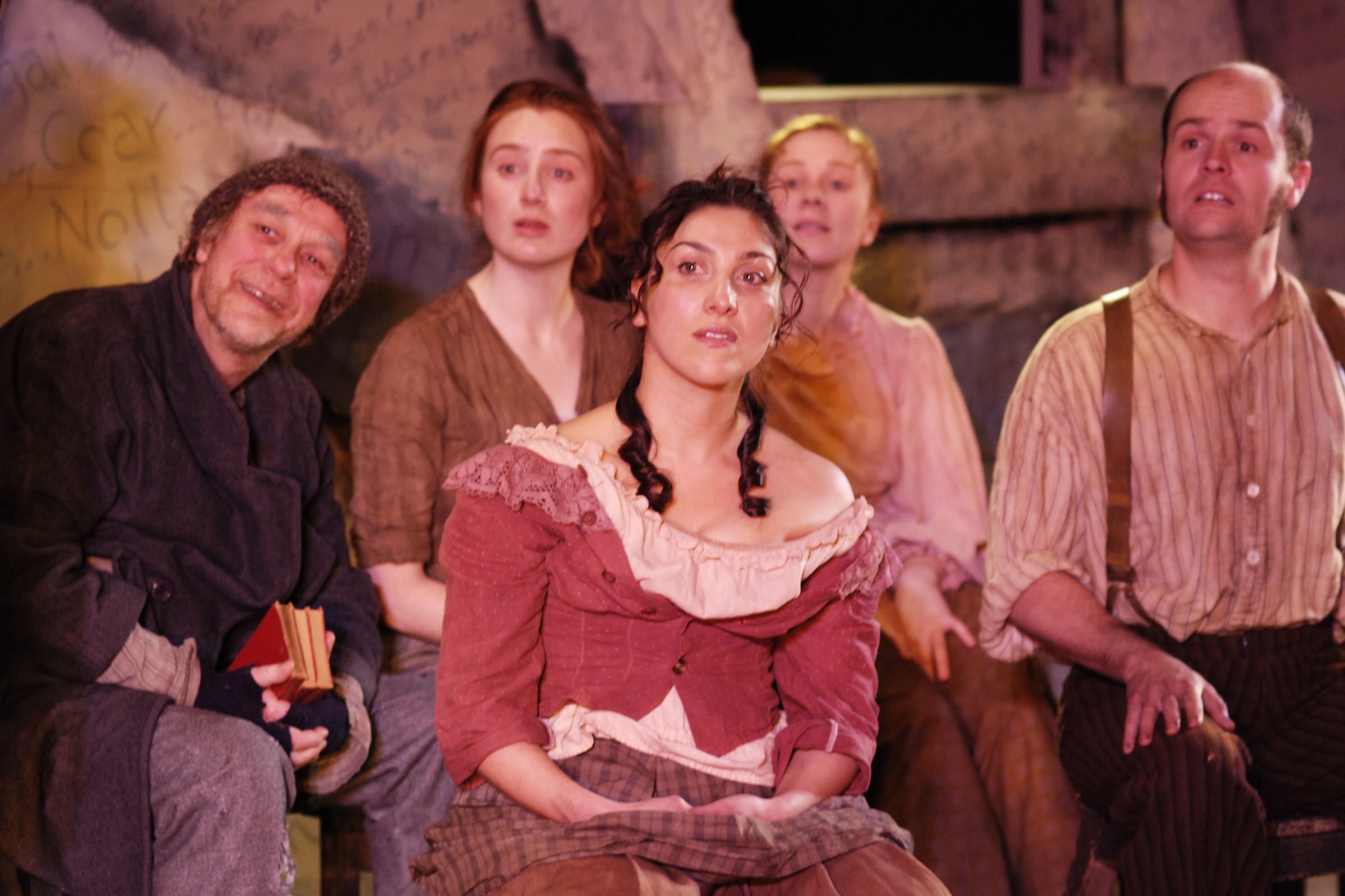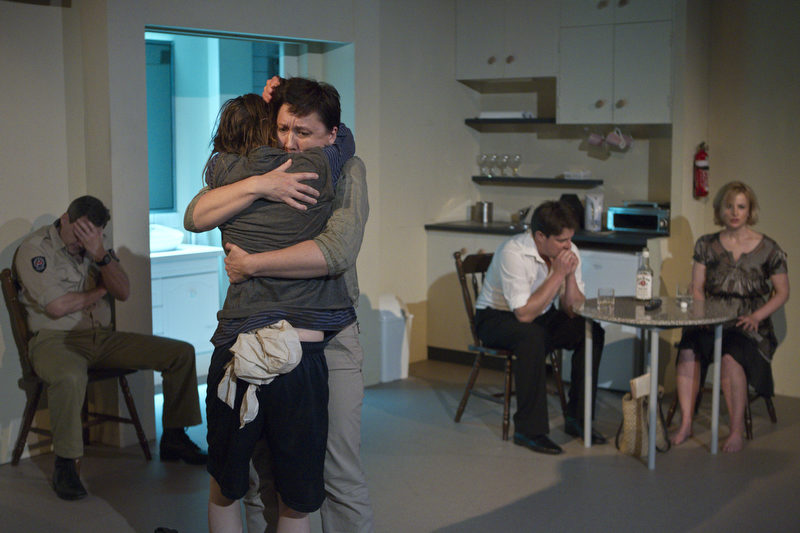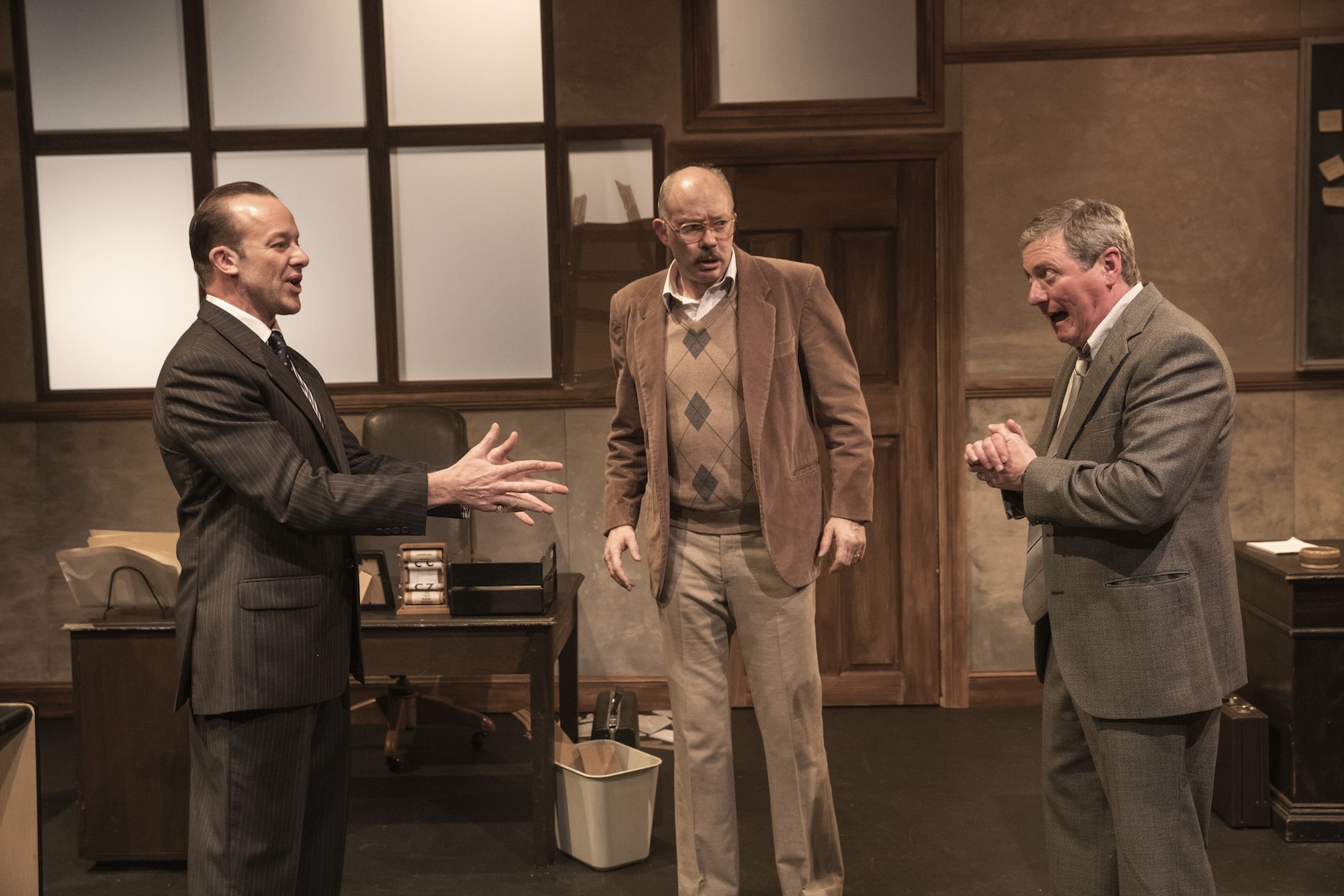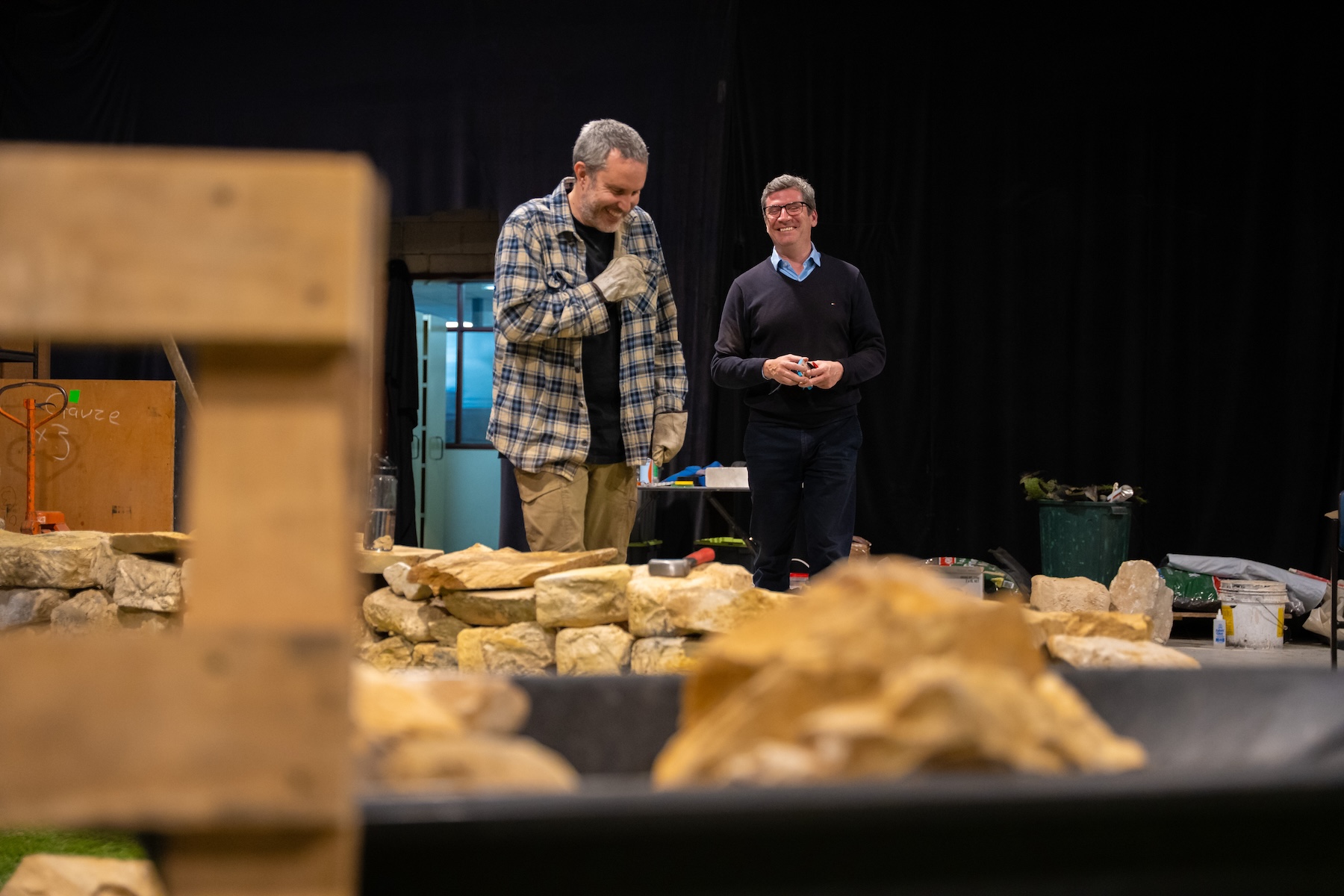Flying Penguin turns ‘ridiculous aspirations’ into two decades of compelling local theatre
Ahead of a new production of Joanna Murray-Smith’s American Song, Adelaide actor turned director David Mealor looks back on 20 years of Flying Penguin Productions.

David Mealor remembers a conversation, with an actor friend in Sydney, way back at the beginning of the century. It was when he first said out loud to someone that he would like to take up directing.
“I would see myself as an actor in rehearsals thinking, ‘I could direct this better than them’,” Mealor tells InReview. “But I didn’t have the courage of the people who were actually doing it!”
Mealor already had an established body of work as an actor and producer, graduating from Flinders University Drama Centre in 1994 before appearing as part of the Brink Productions ensemble for six years.
He found the courage, and began to take steps. First, he approached Professor Julie Holledge, with whom he had studied in the Flinders Uni Drama Centre acting group, about sitting in on her renowned directing class for six months. He also connected with international designer Mary Moore, and began to formulate ideas about staging, sets and how actors engage in them.
“I had done a theoretical exploration of what it was like to direct a production and put in a request for inviting some actors into the rehearsal room. I wanted a perfect play – not one with problems to be solved – and I wanted the best actors so it wasn’t an acting class.”
"I wanted a play with a really large bullseye – so you can’t get it wrong."
On a friend’s recommendation he chose Translations, by Irish writer Brian Friels.
“I read it and it was perfectly constructed. I wanted a play with a really large bullseye – so you can’t get it wrong.”

You might like
The workshops were interrupted by tragedy with the death of Mealor’s father, but the sessions resumed and eventually culminated in the play’s staging the following year.
It was a great success. Opening in September 2005, the Holden Street venue sold out and the production later travelled to Malthouse Theatre in Melbourne for a well-received second season.
Too self-effacing to call it ‘David Mealor and Players’, Mealor dubbed his new project Flying Penguin Productions. He had always been interested in penguins and their arduous lifestyle, which seemed a “suitably inappropriate metaphor for setting up a theatre company – and the ridiculous aspiration of it all.”
Aspirational it was – and inspirational as well. In response to the 20th anniversary, leading Adelaide actors have declared their debt to the company’s work. Writer, director and high-profile performer Elena Carapetis credits her role as Maire in Translations as the springboard to becoming a regular with State Theatre Company South Australia.
Mark Saturno says his casting in Mealor’s 2021 staging of David Mamet’s Glengarry Glen Ross was a unique opportunity. “Here was an iconic role in an iconic play that I would not get to play anywhere else in the world, and yet here was Flying Penguin giving me the chance I had coveted since drama school.”
In addition to an extensive list of freelance and actor training productions, David Mealor has launched fifteen productions for the Penguins. Translations was followed in 2007 by two very contrasting choices: Pinter’s The Birthday Party featuring Rick Allert, Rory Walker, Ksenja Logos, Carmel Johnson and UK actor Gerrard McArthur, and Stephen Stephen Sondheim’s Assassins, a mordant musical recounting the murders of a cavalcade of US Presidents.

The Birthday Party, with a brilliant pared-back design by Mary Moore, was celebrated by critics and is still regarded by Mealor himself as one of his best, but Assassins was a statement of intent.
“If I could do Assassins I could try anything,” he says of the musical, which had been on his wish-list since studying it under Professor Michael Morley at Flinders.
He was joined by a strong bunch of performers including the late Peter Michell, Cameron Goodall, Michaela Cantwell, Geoff Revell, Chris Matters, Syd Brisbane, and Stephen Sheehan. Mealor says that “being in that rehearsal room was one of the greatest things I’ve been involved with.”
Intermittently, over the years, more productions followed. True West by Sam Shepard, a blackly comic study of two brothers, which introduced Renato Musolino, a frequent collaborator of Mealor’s who also featured in Simon Stephens’s Sea Wall (2018 and 2021) and returns this month as the solo performer in Joanna Murray-Smith’s American Song.
Two productions – David Harrower’s Blackbird (2010) and David Mamet’s Oleanna (2022) – demonstrated Mealor’s astute casting and careful presentation of controversial, transgressive material and vindicated his exacting process.
Subscribe for updates
Similarly, the extraordinary production of Mamet’s Glengarry Glen Ross brought together some of the best actors in Adelaide to re-examine a play about a group of predatory salesmen locked in never-ending rivalry and ultimately, self-doubt.

Mealor describes the production as a celebration of Adelaide talent. Splendidly designed by Kathryn Sproul, it featured Saturno, Chris Pitman, Nicholas Garsden and, together again for the first time since The Birthday Party, Rory Walker and Bill Allert
Mealor, who admits he is often unsure about texts on first reading, went back five times before finally deciding he “understood that play”. Realising that “we have all got older” he invited the actors, some he hadn’t worked with for sixteen years, to the project. “That production had not one moment of stress” he recalls.
“One of the things I’m best at,” he quietly notes, “is being able to predict what actors can do, and what they may think they can’t do, but I know they will. I’ve never conducted auditions for actors. I just offer them the role and that has worked. One of the good things about Adelaide is that you know all the actors and I am choosing plays because I know the pool of actors that can do them.”
Perpetually ready to learn and develop, Mealor has always fostered collaborations with the best available. Whether developing design principles from Mary Moore, Gaelle Mellis and Kathryn Sproul, lighting possibilities from Geoff Cobham, Mark Pennington, Chris Petrides and Nic Mollison, or theatre music from The Audreys and Quentin Grant, his attention to every part of the production is evident in the finished work.
His process, which has not deviated from Translations, is to do what is hardest in theatre, and that is to take the necessary time to read, research and ponder – rather than fixating on opening night.
"People share stories and get to understand the play. They learn to fall in love with it."
“Without that deadline focus you can say to the actors, ‘Keep talking’. I’ve found that this way you can make exponential progress, you get a collective production. People share stories and get to understand the play. They learn to fall in love with it.”
For the latest Flying Penguin production for State Theatre Company South Australia’s Stateside program Mealor has chosen a monologue by eminent Australian playwright Joanna Murray-Smith. “I said to Renato, ‘I’m getting itchy. Are you? What can we do?’“
American Song was commissioned by a community theatre company in Milwaukee and first performed in 2016. It draws its title from the poet Walt Whitman’s magnificently bardic ‘I Hear America Singing’ from his innovative classic Leaves of Grass (1855), but it speaks to a troubled present – with Mealor’s production positioned to also reflect on Trump 2.0.
Drawing on accounts from the Columbine school shooting in Colorado in 1999, American Song is narrated by Andy, a forty-something parent who bids goodbye to his son in the morning and, eight hours later, finds everything in his world has changed. Renato Musolino features, with design by Kathryn Sproul, lighting and AV by Nic Mollison, and music and sound design by Quentin Grant.

Looking back at this 20-year project, Mealor’s pride at the company’s output is tempered by regret that he hasn’t done more.
“Fifteen shows,” he reflects. “If I’d had the money I’d do seven shows a year. After Translations I applied for support to set up an ensemble company but the type of work I do wasn’t what people wanted to fund – and I think I have known that all along.”
That David Mealor has produced such high calibre work in this extended, precarious period of under-funded theatre and over-engineered cultural policy directives, has meant that artists like him – and there are many – have hugely subsidised their own work, and often at personal cost to their well-being.
It is also an irony that the largest grant allocations Mealor has received have been for developing new works – that for various reasons have never reached production. The case for a professional repertory company performing already proven recent plays is stronger than ever.
The continuing existence of Flying Penguin Productions shows they are true to their quixotic name. We can only hope that on the basis of an outstanding record of professional work and perceptive programming that more secure support could put the breeze under their wings for more time to come.
American Song opens at Goodwood Theatre on October 24, continuing until November 2
Free to share
This article may be shared online or in print under a Creative Commons licence

